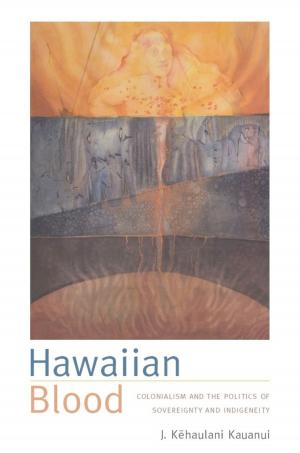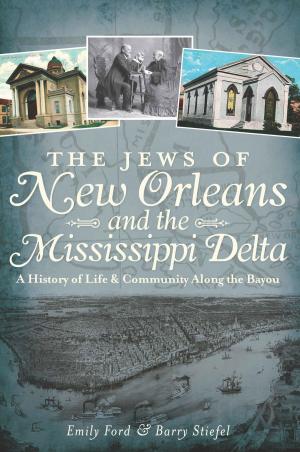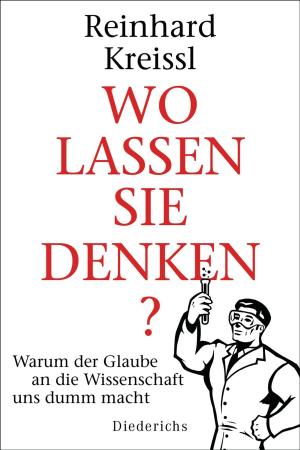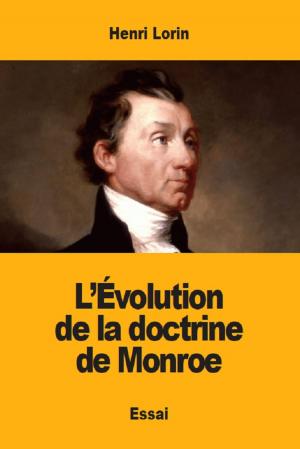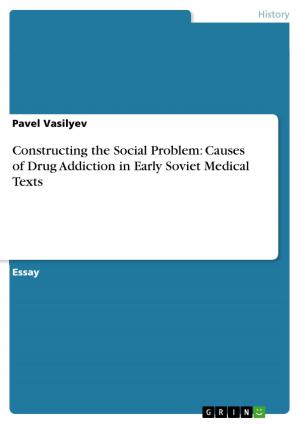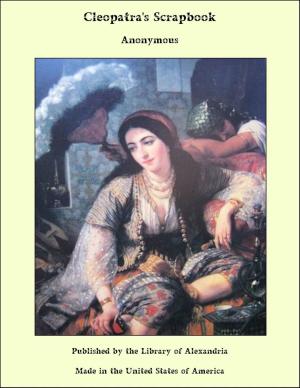Jack Lynch, A Biography: The Life and Times of Irish Taoiseach Jack Lynch (1917–1999)
Biography & Memoir, Political, Historical, Nonfiction, History| Author: | Dermot Keogh | ISBN: | 9780717163762 |
| Publisher: | Gill & Macmillan | Publication: | September 4, 2009 |
| Imprint: | Gill & Macmillan | Language: | English |
| Author: | Dermot Keogh |
| ISBN: | 9780717163762 |
| Publisher: | Gill & Macmillan |
| Publication: | September 4, 2009 |
| Imprint: | Gill & Macmillan |
| Language: | English |
Jack Lynch is one of the most important and perhaps most underrated Irish political leaders of the twentieth century. A sportsman who won six All-Ireland medals in a row with Cork, he was also a civil servant and a barrister before being elected to Dáil Éireann in 1948. During his thirty-one years as a parliamentarian, he held the ministries of Education, Industry and Commerce, and Finance before succeeding Seán Lemass as Taoiseach in 1966. Lynch held office during the critical years of the late 1960s and early 1970s when Northern Ireland disintegrated and civil unrest swept through Belfast, Derry and other towns. This precipitated one of the worst crises in the history of the Irish state.
Jack Lynch upheld the parliamentary democratic tradition at great personal and political cost, even to the point of fracturing the unity of his government and his party. If you want to know what happened during those terrible years, read this book.
Jack Lynch, A Biography: Table of Contents
- From Shandon to Dáil Éireann
Poverty and society in the Shandon area
Daniel and Nora Lynch
Politics and the Lynch family
Early childhood, education and signs of sporting promise
Death of Nora Lynch
North Monastery and sporting stardom
Leaving Certificate, 1936: From first job to study of law
Meeting with Máirín O’Connor
High honours and the end of a distinguished career - Journeyman Politician: Backbench TD and Parliamentary Secretary, 1948–57
Backbench TD
General election and promotion to parliamentary secretary, 1951–4
Opposition again: The 1954 general election and three years on the back benches - Minister for Education, 1957–94
- Minister for Industry and Commerce, 1959–65
Lynch and the legislative backlog
Lynch and the industrial unrest of the 1960s
Tourism and mining
Attracting industry to Cork
General election, the road to free trade and membership of the EEC - Minister for Finance, 1965–6
Closing in on speculators
Final months in Finance - Neither a ‘Caretaker’ nor a ‘Reluctant’ Taoiseach, 1966–9
Why Haughey was promoted
Taca and controlling Fianna Fáil
Foreign policy, membership of the EEC and Anglo-Irish relations
Irish foreign policy and Viet Nam
Visit to Terence O’Neill
Conflict in Northern Ireland
The 1969 general election - The Northern ‘Troubles’ and the Irish State
Hillery’s visit to London, 1 August 1969
Government meeting as Northern crisis worsens
Lynch’s television address
The Government’s follow-up action
Whitaker called on for advice
Hillery in London again
Government meeting of 16 August 1969
Press and propaganda strategy and Operation ‘Silk Purse’
Hillery at the United Nations
The IRA and the Lynch policy of ‘no fraternisation’
Public diplomacy and Northern Ireland
Whitaker and the shaping of policy on Northern Ireland
Regaining the policy initiative
The Voice of the North
Military intelligence and Northern Ireland
Open challenge from Neil Blaney: ‘Fianna Fáil never ruled out the use of force’
The Fianna Fáil ard-fheis, 1970
Conspiracy to import arms
The Dundalk arms shipment
The murder of Garda Fallon and gun-running
Captain Kelly and the ‘gun-running’ plan
‘We stand on the brink of a great achievement’
The Arms Trial
Keeping a dignified silence
‘You can have Boland but you cannot have Fianna Fáil’: The 1971 ard-fheis - Ireland and Europe: Negotiating Membership of the EEC
- Constitutional Politics and Revolutionary Challenge, 1971–3
Internment
Intervention by Máirín Lynch
Sunday, Bloody Sunday
The IRA discusses assassinating the Minister for Justice
Whitaker opens lines of communication with Unionism
Summer peace overtures end in failure
Whitaker and the parallel track to the Unionists and the British
Anglo-Irish relations in the autumn of 1972 - Opposition and Return to Power, 1973–9
Aiken resigns over Haughey nomination
Victory for the National Coalition
Lynch, the National Coalition and Sunningdale, 1973
Life in opposition
The Littlejohn affair: ‘Stinking to high Heaven’
Reviving Fianna Fáil
The road back to power
Fianna Fáil returns to power - ‘Happy is the man who finds wisdom’: Retirement and Final Years, 1980–99
Staying out of politics
Death and funeral
O’Malley’s graveside oration
In appreciation of a public life
Death of Má:irín Lynch - Jack Lynch’s Place in Irish History
Jack Lynch is one of the most important and perhaps most underrated Irish political leaders of the twentieth century. A sportsman who won six All-Ireland medals in a row with Cork, he was also a civil servant and a barrister before being elected to Dáil Éireann in 1948. During his thirty-one years as a parliamentarian, he held the ministries of Education, Industry and Commerce, and Finance before succeeding Seán Lemass as Taoiseach in 1966. Lynch held office during the critical years of the late 1960s and early 1970s when Northern Ireland disintegrated and civil unrest swept through Belfast, Derry and other towns. This precipitated one of the worst crises in the history of the Irish state.
Jack Lynch upheld the parliamentary democratic tradition at great personal and political cost, even to the point of fracturing the unity of his government and his party. If you want to know what happened during those terrible years, read this book.
Jack Lynch, A Biography: Table of Contents
- From Shandon to Dáil Éireann
Poverty and society in the Shandon area
Daniel and Nora Lynch
Politics and the Lynch family
Early childhood, education and signs of sporting promise
Death of Nora Lynch
North Monastery and sporting stardom
Leaving Certificate, 1936: From first job to study of law
Meeting with Máirín O’Connor
High honours and the end of a distinguished career - Journeyman Politician: Backbench TD and Parliamentary Secretary, 1948–57
Backbench TD
General election and promotion to parliamentary secretary, 1951–4
Opposition again: The 1954 general election and three years on the back benches - Minister for Education, 1957–94
- Minister for Industry and Commerce, 1959–65
Lynch and the legislative backlog
Lynch and the industrial unrest of the 1960s
Tourism and mining
Attracting industry to Cork
General election, the road to free trade and membership of the EEC - Minister for Finance, 1965–6
Closing in on speculators
Final months in Finance - Neither a ‘Caretaker’ nor a ‘Reluctant’ Taoiseach, 1966–9
Why Haughey was promoted
Taca and controlling Fianna Fáil
Foreign policy, membership of the EEC and Anglo-Irish relations
Irish foreign policy and Viet Nam
Visit to Terence O’Neill
Conflict in Northern Ireland
The 1969 general election - The Northern ‘Troubles’ and the Irish State
Hillery’s visit to London, 1 August 1969
Government meeting as Northern crisis worsens
Lynch’s television address
The Government’s follow-up action
Whitaker called on for advice
Hillery in London again
Government meeting of 16 August 1969
Press and propaganda strategy and Operation ‘Silk Purse’
Hillery at the United Nations
The IRA and the Lynch policy of ‘no fraternisation’
Public diplomacy and Northern Ireland
Whitaker and the shaping of policy on Northern Ireland
Regaining the policy initiative
The Voice of the North
Military intelligence and Northern Ireland
Open challenge from Neil Blaney: ‘Fianna Fáil never ruled out the use of force’
The Fianna Fáil ard-fheis, 1970
Conspiracy to import arms
The Dundalk arms shipment
The murder of Garda Fallon and gun-running
Captain Kelly and the ‘gun-running’ plan
‘We stand on the brink of a great achievement’
The Arms Trial
Keeping a dignified silence
‘You can have Boland but you cannot have Fianna Fáil’: The 1971 ard-fheis - Ireland and Europe: Negotiating Membership of the EEC
- Constitutional Politics and Revolutionary Challenge, 1971–3
Internment
Intervention by Máirín Lynch
Sunday, Bloody Sunday
The IRA discusses assassinating the Minister for Justice
Whitaker opens lines of communication with Unionism
Summer peace overtures end in failure
Whitaker and the parallel track to the Unionists and the British
Anglo-Irish relations in the autumn of 1972 - Opposition and Return to Power, 1973–9
Aiken resigns over Haughey nomination
Victory for the National Coalition
Lynch, the National Coalition and Sunningdale, 1973
Life in opposition
The Littlejohn affair: ‘Stinking to high Heaven’
Reviving Fianna Fáil
The road back to power
Fianna Fáil returns to power - ‘Happy is the man who finds wisdom’: Retirement and Final Years, 1980–99
Staying out of politics
Death and funeral
O’Malley’s graveside oration
In appreciation of a public life
Death of Má:irín Lynch - Jack Lynch’s Place in Irish History

